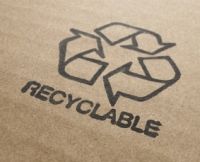

The new Plastics Packaging Tax will come into force from 1 April 2022.
The key facts of this tax are:
Packaging subject to the tax
Where the packaging or component is produced in the UK, it is the producer (manufacturer) who pays the tax.
Where it is imported into the UK, it is the person on whose behalf the packaging or component is imported who pays.
It only applies to "finished" products, mainly made of plastic, where the plastic content of the packaging contains less than 30% recycled material.
A "packaging component" is a product that is designed to be suitable for use, whether alone or in combination with other products, in the containment, protection, handling, delivery or presentation of goods at any stage in the supply chain, from the producer to the consumer or user.
This is a definition much wider in scope than that of the current Packaging Waste Regulations, which covers reusable and refillable items such as plastic crates and intermediate bulk containers (IBCs).
Products not included
There are some categories of products which will not be subject to the tax, such as those:
Exemptions
There are also several exemptions that are out of scope of the tax:
Where plastic packaging is intended for export, payment of the tax can be deferred for up to 12 months as long as certain requirements are met.
Reporting and registration
Businesses will need to register from 1 April 2022 with HMRC if:
If a business no longer meets the conditions for registration, they will be able to cancel their registration.
Secondary liability and due diligence
Although it is the importer or manufacturer of packaging components that is mainly liable for the Plastic Packaging Tax, others in the supply chain can also be liable if they knew that the tax should have been paid but wasn't.
The provisions apply not just to those involved in the production or importation of the packaging components but also those involved in transporting or storing products and operators of online marketplace or fulfilment businesses. This means that any related businesses need to carry out due diligence checks to establish the integrity of their suppliers.
Checklist of things to do
Below is a list of things you might need to do:
Related legislation
For more information on the Plastic Packaging Tax, see the: